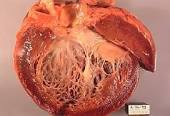Leave a Comment:
2 comments
[…] To Learn More about Cardiotoxic chemotherapy-click now […]
Reply[…] To Learn More about Cardiotoxic chemotherapy-click now […]
Reply
Learn about conventional, complementary, and integrative therapies.
Dealing with treatment side effects? Learn about evidence-based therapies to alleviate your symptoms.
Click the orange button to the right to learn more.

Cardiotoxicity is a subject and side effect that is near and dear to my heart. I was prescribed dox as a part of my 6 rounds of induction therapy for my multiple myeloma. I then received two rounds of high dose cytoxan followed a few weeks later by an autologous stem cell transplant featuring both melphalan and busulphan. All 4 of these chemotherapy regimens cause cardiotoxicity.
It should have been no surprise to my oncologists that I developed chemotherapy-induced cardiomyopathy. The only surprise it that this side effect took about 15 years to flip me into chronic atrial fibrillation aka Afib.
After many years dealing with the side effects caused by cardiotoxicity, I’ve come to the conclusion that the cancer patient have only a couple of choices if he or she has undergone a cardiotoxic chemo regimen. As the second study linked below talks about, total dose should be listed in the patient’s medical notes. Try to figure out if chemotherapy-induced cardiomyopathy is in your future.
“But during baseline conditions the end systolic wall stress was significantly increased in patients in whom the cumulative dose of doxorubicin exceeded 360 mg/m2.”
Secondly, consider taking those nutritional supplements that have shown the ability to heal your heart or at least try to minimize the heart damage.
I fall into this second category. I supplement with everything listed below. I don’t use any conventional heart meds such as metoprolol.
Don’t misunderstand me. I live with all sorts of heart damage. My only point is that my supplementation, nutrition and lifestyle has stabilized my heart without conventional heart meds. I consider this a minor triumph.
Cardiotoxicity is a common side effects amongst cancer survivors. Cancer survivors must advocate for themselves.
Are you a newly diagnosed cancer patient who is about to undergo a cardiotoxic regimen? Or maybe you underwent a cardiotoxic chemo years ago and you are wondering how to manage your heart health.
Either way, scroll down the page, post a question or comment and I will reply to you ASAP.
Hang in there,
David Emerson
“Anthracyclines are a class of drugs used in cancer chemotherapy that are extracted from Streptomycesbacterium.[2][3] These compounds are used to treat many cancers, including leukemias, lymphomas, breast, stomach, uterine, ovarian, bladder cancer, and lung cancers. The first anthracycline discovered was daunorubicin(trade name Daunomycin), which is produced naturally by Streptomyces peucetius, a species of Actinomycetota. Clinically the most important anthracyclines are doxorubicin, daunorubicin, epirubicin and idarubicin.[4]
The anthracyclines are among the most effective anticancer treatments ever developed and are effective against more types of cancer than any other class of chemotherapeutic agents.[4][5][6]
Their main adverse effect is cardiotoxicity, which considerably limits their usefulness. Use of anthracyclines has also been shown to be significantly associated with cycle 1 severe or febrile neutropenia.[7] Other adverse effects include vomiting.
The drugs act mainly by intercalating with DNA and interfering with DNA metabolism and RNA production. Cytotoxicity is primarily due to inhibition of topoisomerase II after the enzyme induces a break in DNA, preventing religation of the break and leading to cell death. The basic structure of anthracyclines is that of a tetracyclic molecule with an anthraquinone backbone connected to a sugar moiety by a glycosidic linkage. When taken up by a cell the four ring structure intercalates between DNA bases pairs while the sugar sits within the minor groove and interacts with adjacent base pairs…”
[…] To Learn More about Cardiotoxic chemotherapy-click now […]
Reply[…] To Learn More about Cardiotoxic chemotherapy-click now […]
Reply